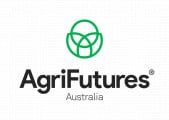AgriFutures Australia

Appetite in birds is driven by nutritional status. Energy homeostasis is one of the main drivers of feed intake in chickens; however, other nutrients such as amino acids or calcium (Ca) also contribute to the onset of hunger/satiety, referred to as nutrient-specific appetite. Birds seem to adjust feed intake and change feeding behaviour in response to dietary energy, amino acids, Ca, Na, organic acids, fibre, fats, sugars and several bitter compounds. However, current practices in feed formulation do not take into account the influence on appetite of several of these nutrients (particularly the nonessentials) and nutrient interactions. Moreover, individual variations in broiler feeding behaviour have not yet been fully explained.The aim of the project is to provide quantitative evidence to adjust the marginal nutrient levels in the broiler formulas to decrease feeding costs while improving flock efficiency and uniformity.


-crop-850x675.png)
Have questions?
Find answers to our most frequently asked questions on research projects, commercial opportunities, organisations and more.
Still have questions or have feedback on the site? Please get in touch by completing our enquiry form.